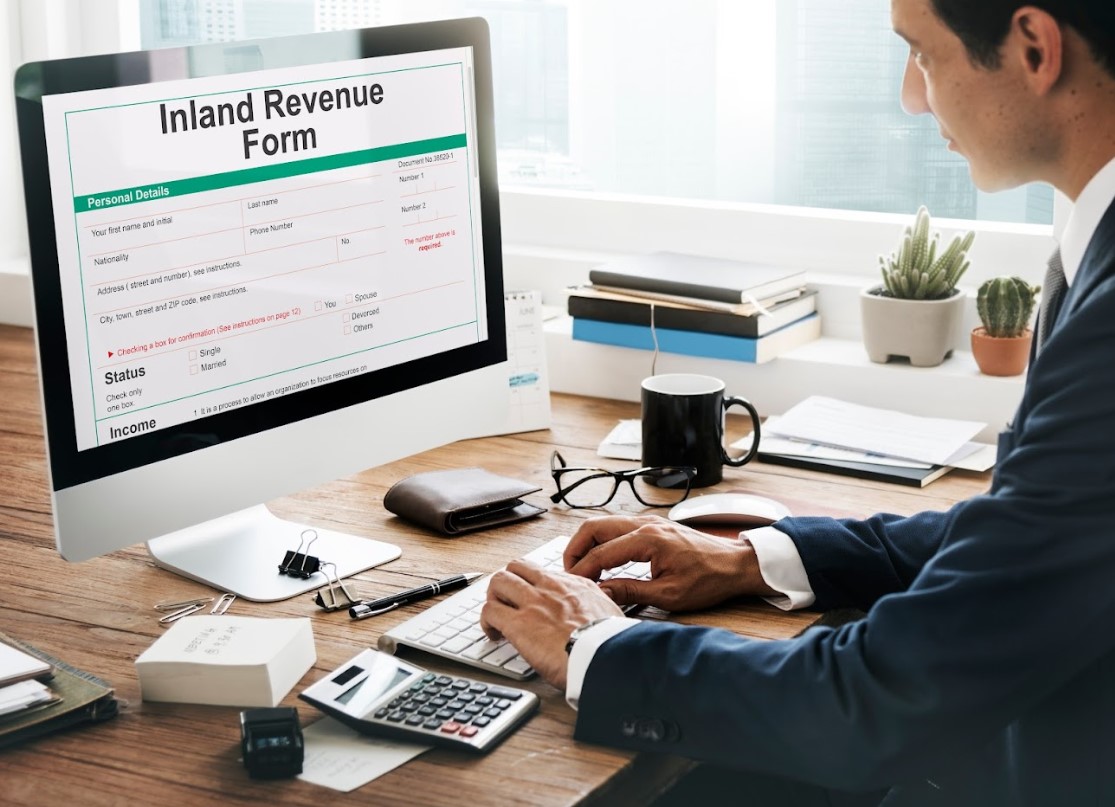
2022 Singapore Budget Highlights
2022 SINGAPORE BUDGET HIGHLIGHTS
This article serves to capture the highlights of the 2022 Singapore Budget announced on 18 February 2022.
IMPACT ON BUSINESSES
Jobs and Business Support Package
Small Business Recovery grants
Eligible firms will receive SGD 1,000 for each local employee with mandatory CPF contributions in the period from 1 November 2021 to 31 December 2021, up to a cap of SGD 10,000 per firm.
Sole proprietorships and partnerships that are run by at least one local business owner but do not hire any local employees will receive a flat payout of SGD 1,000, if the local business owner is earning a net trade income of no more than SGD 100,000 filed with Inland Revenue Authority of Singapore (IRAS) in the Year of Assessment 2021 by 31 December 2021.
The IRAS will notify eligible firms starting from June 2022.
Jobs Growth Incentive (JGI)
To be extended for another 6 months to September 2022. The extension will only cover the hiring of mature workers aged 40 and above who have not been employed for 6 months or more, persons with disabilities, and ex-offenders.
Extension of Temporary Bridging Loan Programme and Enterprise Financing Scheme
Temporary Bridging Loan
To be extended for another 6 months to 30 September 2022. The maximum loan quantum has been revised to SGD 1 million per borrower, from SGD 3 million, while the maximum loan quantum for borrower groups will be set at 20 million. The cap on the interest rate is also raised to 5.5%, from 5% previously.
Enhanced Trade Loan
To be extended to 30 September 2022, with a maximum loan quantum of SGD 5 million per borrower or SGD 20 million per borrower group.
Enhanced Project Loan
To be extended to 31 March 2023, with a maximum loan quantum of SGD 30 million per borrower or per borrower group for domestic projects and is eligible for Singapore enterprises in the construction sector.
Merger and Acquisition (M&A) Loan
To be expanded to include domestic M&A activities from 1 April 2022 to 31 March 2026.
Strengthen digital and innovation capabilities
Advanced Digital Solutions scheme
From 1 April 2022, the scheme will be expanded to include solutions that leverage Artificial Intelligence (AI) and Cloud technologies. Participating enterprises will receive up to 70% funding support for these solutions.
Grow Digital scheme
From 1 April 2022, the scheme will be expanded to provide up to 70% funding support to participating enterprises to onboard pre-approved digital platforms, B2B and B2C e-commerce platforms.
TechSkills Accelerator (TeSA) Scheme
This scheme will be expanded to build a strong Singapore core of Information and Communication Technology (ICT) talents, including:
- Partnering with industry leaders to grow product development teams in Singapore;
- Expanding TeSA to SMEs and startups to provide more jobs opportunities for mid-career workers; and
- Upskilling our current digital workforce to keep their skills relevant.
Help Firms to Scale Up Training Efforts
Company Training Committees (CTCs)
To support companies that have set up CTCs, a new grant to be administered by NTUC will be given to help companies implement their training and transformation programmes.
SkillsFuture Enterprise Credit (SFEC)
The eligibility criteria have been amended, including a waiver of Skills Development Levy during the qualifying period between 1 January 2021 to 31 December 2021. The deadline to claim SFEC will be extended to 30 June 2024 which will allow employers more time to plan for their employees’ training needs. Eligible employers will be notified in April 2022.
Two New Schemes to help promising large local companies expand
Singapore Global Enterprise
The new initiative will provide customised assistance to promising local enterprises in areas such as innovation, internationalisation and fostering of partnership with other firms.
Singapore Global Executive Programme
The new programme will help companies with talent development through industry and overseas attachments, mentorships and peer support networks.
More details on the new schemes will be released by the relevant government agency in due course.
Uplifting lower wage workers
Progressive Wage Credit Scheme (PWCS)
The government will co-fund salary increments given by companies to their lower-wage workers between 2022 to 2026. For those earning less than SGD 2,500 per month, the PWCS co-funding rate will be 50% for the years 2022 and 2023. This will be reduced to 30% from 2024 to 2025 and thereafter, 15% in 2026.
Enhancement of Workfare Income Supplement Scheme
The above scheme will be enhanced with effect 1 January 2023 to as follows:
- Extension to younger lower-wage workers aged 30 to 34.
- Qualifying monthly income cap of SGD 2,500.
- Higher annual workfare pay-outs of up to SGD 4,200.
- All persons with disabilities will qualify for the highest pay-out tier, regardless of age.
- Minimum qualifying monthly income criterion of SGD 500.
Adjustment to Foreign Worker Policies
The minimum qualifying salaries for new Employment Pass (EP) and S Pass applicants will rise by SGD 500 from 1 September 2022 and renewal applications from 1 September 2023, as follow:
- Minimum qualifying salary for new EP applicants will be raised to SGD 5,000 and SGD 5,500 for financial services sector.
- Minimum qualifying salary for new S Pass application will rise to SGD 3,000 and SGD 3,500 for the financial services sector.
- Tier 1 monthly levy will also be progressively raised from SGD 330 to SGD 650 by 2025.
- The dependency ratio ceiling will be reduced for the Construction and Process sectors from 1 January 2024.
OTHER TAXES
Personal Income Tax
High income earners will pay more personal income tax with effect from Year of Assessment 2024 as the top marginal personal tax rates are revised as follow:
- Chargeable income between SGD 500,000 to SGD 1,000,000: 23%
- Chargeable income in excess of SGD 1,000,000: 24%
Wealth Tax (Property Tax)
Property taxes for both owner-occupied and non-owner-occupied residential properties will be hiked from 2023.
For owner-occupied residential properties, currently, the property tax rate ranges from 4% to 16% for Annual Value (“AV”) beyond the first SGD 8,000. Under the new changes, the property tax rate for AV in excess of SGD 30,000 will be increased to 5% to 23% in 2023 and to 6% to 32% in 2024.
For non-owner-occupied residential properties, current property tax rate of 10% to 20% will be raised to 11% to 27% in 2023 and to 12% to 36% in 2024.
Wealth Tax (Luxury Cars)
Purchasers of luxury cars will have to pay more for their cars effective this month (Second COE bidding of February 2022) as an Additional Registration Fee (“ARF”) will be levied for cars at a rate of 220% for the portion of Open Market Value in excess of SGD 80,000.
Minimum Effective Tax Rate [“METR”] Regime
The Inland Revenue Authority of Singapore (IRAS) will study the impact of the Base Erosion Profit Shifting initiatives, Pillars 1*and 2^ on the Singapore economy before making changes to the corporate tax system. In particular, the IRAS will explore the implementation of METR which will “top-up” a multinational enterprise [“MNE”] group’s effective tax rate in Singapore to 15%. Further updates will be released once the studies are completed.
*Pillar 1: Re-allocates profit of the largest and most profitable MNEs from where activities are conducted to where the consumers are located.
^Pillar 2: Includes rules which impose a global minimum effective tax rate of 15% for MNE groups with annual global revenues of Euros750 million or more.
Good & Services Tax (GST)
The planned GST increase will be delayed to 2023 and be implemented in phases as follows:
- With effect 1 January 2023: 8%
- With effect 1 January 2024: 9%
Carbon Tax
The carbon tax rate will be increased progressively from the current SGD 5 per tonne of emissions to:
- SGD 25 per tonne from 2024
- SGD 45 per tonne from 2026 and 2027
- SGD 50 to SGD 80 per tonne by 2030
Get in touch and discover how we can help
Got a question or inquiry? Come talk to us today.
Contact Us


